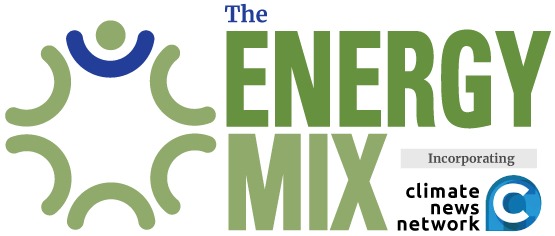‘It Depends’: Carney Shifts Stance on Maintaining Emissions Cap
Prime Minister Mark Carney said Friday the fate of the federal emissions cap on oil and gas producers depends on other efforts to lower emissions, suggesting his government might be open to scrapping the policy—an apparent shift from his commitment to it earlier this year.
Speaking to reporters in Ottawa, Carney was asked if he is considering dropping the cap and the tanker ban along the B.C. coast—two measures the oil and gas industry and its allies in the Alberta government are demanding that Ottawa repeal.
“It depends,” he said, before launching into an explanation of his government’s goal of lowering emissions from the energy, mining, and manufacturing sectors to make their products more competitive globally.
“In order to satisfy all those conditions, it depends on what’s done. What this government is interested in is results, not objectives,” Carney added.
Carney told reporters in March he would keep the emissions cap in place, though he also has said he wants to find other ways to lower emissions.
The hard-fought emissions cap, which will not take effect until 2030-32, requires upstream oil and gas operations to reduce their emissions by 35% below where they were in 2019. Ottawa tabled draft regulations last year, two years behind schedule.
Under the Paris climate accord, Canada has committed to cutting emissions by at least 40% from their 2005 level by 2030. Carney and his ministers have sidestepped questions when asked about that target, committing instead to Canada’s goal of becoming net-zero by 2050.
The emissions cap is part of Canada’s plan to meet those targets. The oil and gas sector accounts for about one-third of total greenhouse gas emissions.
It was the only sector to see a rise in emissions last year— up 1.9%—offsetting reductions from other sectors, the Canadian Climate Institute reported in September.
Multiple studies suggest Canada is not on track to meet its 2030 target, with emissions currently about 8.5% below what they were in 2005.
Carney said he remains in “constructive discussions” with Alberta Premier Danielle Smith—who has called for the emissions cap and the tanker ban to be repealed, along with other environmental regulations she claims are “bad laws.”
The two have spoken of a “grand bargain” in recent months that would link Alberta’s desire for a pipeline to the British Columbia coast to the completion of the financially and technically precarious Pathways Alliance carbon capture project. Smith has said she hopes to have a deal in place by the Grey Cup in mid-November, and have a proposal submitted to the federal government’s new Major Projects Office by the spring.
When asked Friday if he supports a new pipeline to the West Coast, Carney said the government believes in “nation building projects,” including conventional energy projects. But they must have material economic benefits, be consistent with climate objectives, and provide benefits for Indigenous peoples.
“It depends on all of those elements and this government will engage with proposals that have a possibility or prospect of achieving those,” he said.
Smith and industry leaders have repeatedly said no pipeline project is worthwhile as long as the emissions cap and tanker ban remain in place. Enbridge CEO Greg Ebel said in a speech last week his company wouldn’t build a “pipeline to nowhere,” referring to the industry’s inability to export oil off the B.C. coast because of the tanker ban.
Complicating matters has been a brewing spat in recent weeks between Smith and B.C. Premier David Eby, who on Tuesday said Smith’s pipeline plan threatens community support and the social licence that would allow other major projects along the coast to move forward.
Eby said repealing the tanker ban would risk upsetting his province’s current “fragile consensus” over resource development, one that he hopes to strengthen.
Smith clapped back at Eby’s comments, calling them “un-Canadian and unconstitutional.”
The interprovincial spat came up in Senate Thursday, when Energy and Natural Resources Minister Tim Hodgson was grilled on Ottawa’s plans to help move a pipeline project forward.
“How can your government claim to make Canada an energy superpower while blocking every route to the ocean?” asked Sen. Yonah Martin, a Conservative from B.C.
The federal government does have the constitutional authority to regulate interprovincial pipelines. Hodgson said any project needs the support of the jurisdiction in which it’s being built, so Alberta needs B.C.’s support if it wants to build.
“That is between the province of Alberta and the province of British Columbia,” Hodgson said. “We have said we will be a constructive participant in that three-way discussion. The province of Alberta has some work to do.”
Another route for oil exports out of Alberta could be in the works. In his meeting with U.S. President Donald Trump in Washington earlier this week, Carney pitched the idea of reviving the Keystone XL pipeline in exchange for relief for Canada’s steel and aluminum sectors.
But critics say even the Keystone XL plan faces hurdles if the government won’t budge on the emissions cap.
“It doesn’t matter if you can build a pipeline if you can’t put anything through it,” Conservative MP Andrew Scheer told reporters in Ottawa Wednesday.
Cover photo: kris krüg/flickr



